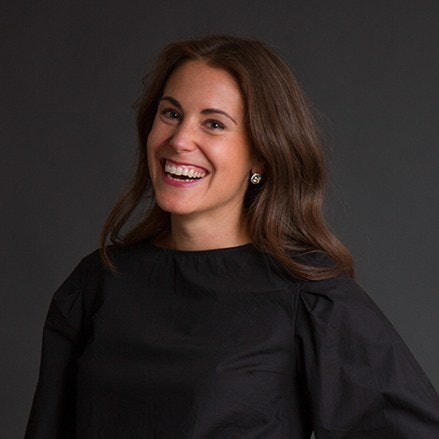This post originally appeared on HubSpot’s blog.
Let’s face it: Life does not get easier as you grow older.
If anything, it gets messier and more complicated. You can quickly wake up and not recognize the world you exist in every single day.
I’ve been married for 10 years, and my third child will quickly be entering this world. I also founded and built an agency that employs more than 40 people and has seen 950% growth in annual revenues. While it might look good today, nothing about pulling off this thing called life has been smooth or easy.
In fact, it took me a while to understand the difference between living life and living for the life that you want. One simply requires breathing. The other requires more intentional efforts. Here are eight things I’ve learned about living an intentional life that I wish my 24-year-old self had known before she started on this journey.
1) Choose to see yourself — and your past — as an asset. You’ll exhaust yourself trying to be someone different than who you really are.
I was raised on a farm outside Indianapolis. My dad didn’t go to college — he’s a self-made man. I went to Purdue University, not some Ivy League school. I’ve only ever lived in the Midwest. I have two girls and another one will join her sisters shortly.
And at some point in my life, I saw all of these things as massive reasons why I couldn’t be successful.
I internalized my story. I thought:
- If only my dad had a big job and knew important people.
- If only I had more connections.
- If only I had lived in a big city.
The story inside our head is often the narrative of what we can become. Instead of figuring out how we can use our unique experiences to contribute to the world, we see these things as barriers. You need to choose to see your skills and your past as assets because the way we view ourselves and our histories influence how others see us. You have to decide what you are going to be okay with, so others can become okay with you.
2) Steer clear of people who only tell you what you want to hear.
I tend to be more likeable than not. That can be an asset, but it can also be a massive liability.
This was a huge trap for me early in my career. I surrounded myself with people who thought I was great, which means I could only be as great as they allowed me to be. They would never call me on my crap.
Instead, I needed people who would push me to deal with important things and get to the next level.
For many women, this is especially relevant. We can have reciprocal — even fake — relationships with people who compliment us because they want to hear compliments about themselves.
To be better, you need to find friends and colleagues who have the confidence to call you out on your own issues. These people care about you becoming the best version of yourself. Once you find these people, hold onto them.
3) Hard is not the end. It’s just hard.
My dad has always said that one of the biggest reasons people fail is they just stop trying. At some point they decide it’s the end, even though it’s not the end. It just got really hard.
In 2008, my agency ran smashing into the recession. I had to fire half of my staff. We lost a lot of money. I didn’t know you could lose money that fast.
I wanted to quit — badly.
When things get tough, we have a “fight or flight” reaction, and that’s when most people bail.
The thing is that if you want something that seems extra special, it is going to be extra hard to achieve it.
I had to think of it like this: If I do hard things, my sphere of what is easy will get bigger, and then there will be fewer hard things to do. And the things that are hard today won’t be hard tomorrow — I’ve already done the hard thing before. I can do it again.
4) Who you spend your time with and what you spend your time on is what you will become.
The adage is true: Life is defined by what you say “no” to more than what you say “yes” to.
What you allow into your life is what you will become. If you want to be successful, spend your time with people who are successful. If you want to be kind, be around kind people.
When I was starting my agency, I needed to surround myself with people who knew how to run a business. I wanted to observe and absorb how they thought through problems. I wanted to know how they communicated. I needed to imitate and follow them until I could stand on my own.
This idea also applied to my personal life.
My husband owns his own business. I own a business. And we wanted a family. If we were going to pull this off, we needed to be very intentional about the people we spent our time with and how we spent that time. My husband and I only said “yes” to things in three main areas: our family, our businesses, and our church.
We had to be intentional to even remotely have a chance at being successful in these three areas.
5) Be vulnerable first — and you’ll be surprised what you learn and who you meet.
When I was first starting out, I was terrified. I was scared every day that people would find out that I didn’t know everything in the world.
But when I stopped being scared and started being vulnerable, a funny thing happened. People who I thought knew everything in the world started opening up. They shared with me that they faced the same challenges. They struggled as well.
If you are going to have a real relationship with someone, you have to be vulnerable. And someone has to be the first. Be the one who opens up the dialogue.
No one has it all figured out. We are all just trying really hard. If you can be vulnerable, you can share the journey with others who have similar insecurities. This is a less lonely and more fulfilling route to take.
6) Work harder at your marriage and your family than you do at your job.
As I pointed out earlier, the recession hit my agency hard. I almost lost it. But I’ve also almost lost my marriage.
During this time I remember thinking: It would be really embarrassing for me to lose my company, but it would be devastating for me to lose my marriage.
At work, we have a built-in structure for setting goals and reviewing our performance. We also need this at home. Things can get off center by just a centimeter, and before you even realize it, it can all fall apart.
Work to make your relationship a priority. Be clear about what you want. Delegate things when you can, and be okay with the fact that they might not get done according to your definition of perfect. Spend your time focused on the right things.
7) Release the outcome. Focus on the next right decision.
My company is a different company every single day. And every day, I have to make decisions about things that I have never done before.
As people begin to make more difficult and impactful decisions, they can become paranoid. How do they make the all the right decisions?
This is an impossible standard — and one that I figured out I couldn’t live up to. I had to change. I decided to make the next right decision. Sometimes, that next decision is undoing the previous decision, but I’m always working towards making the next right decision.
Don’t obsess over the outcome. This can be debilitating. Take in the information, have confidence, and be willing to change things if it didn’t turn out like you hoped.
8) Riding the guilt train is a choice.
When I went back to work after my second child, I was tired, overwhelmed, and worst of all, guilty.
I had a conversation with a colleague of mine. He said: The guilt train is a choice. You can choose to ride it or step off.
This hit me hard.
I truly believe I am supposed to be a mom. I also believe that I am supposed to be the president of Element Three. I have the opportunity to have two great roles in life. I’m lucky.
Don’t pressure yourself or the people around you into feeling guilty for working and being a mother. It is a possible reality to be both an amazing parent and an amazing business professional. You have to be devoted to both and give both roles a lot of passion. And feeling guilty about either will only get in your way.





